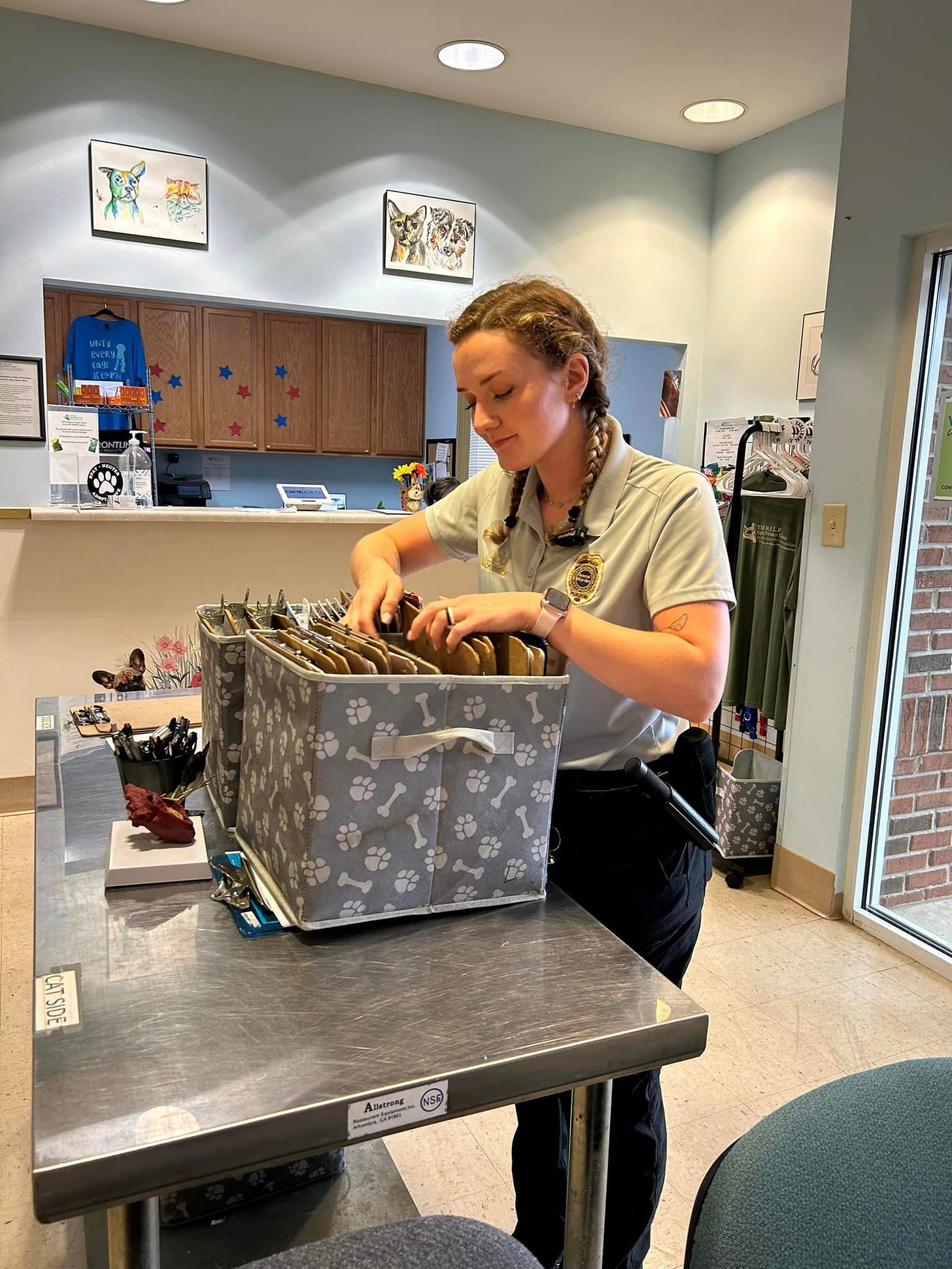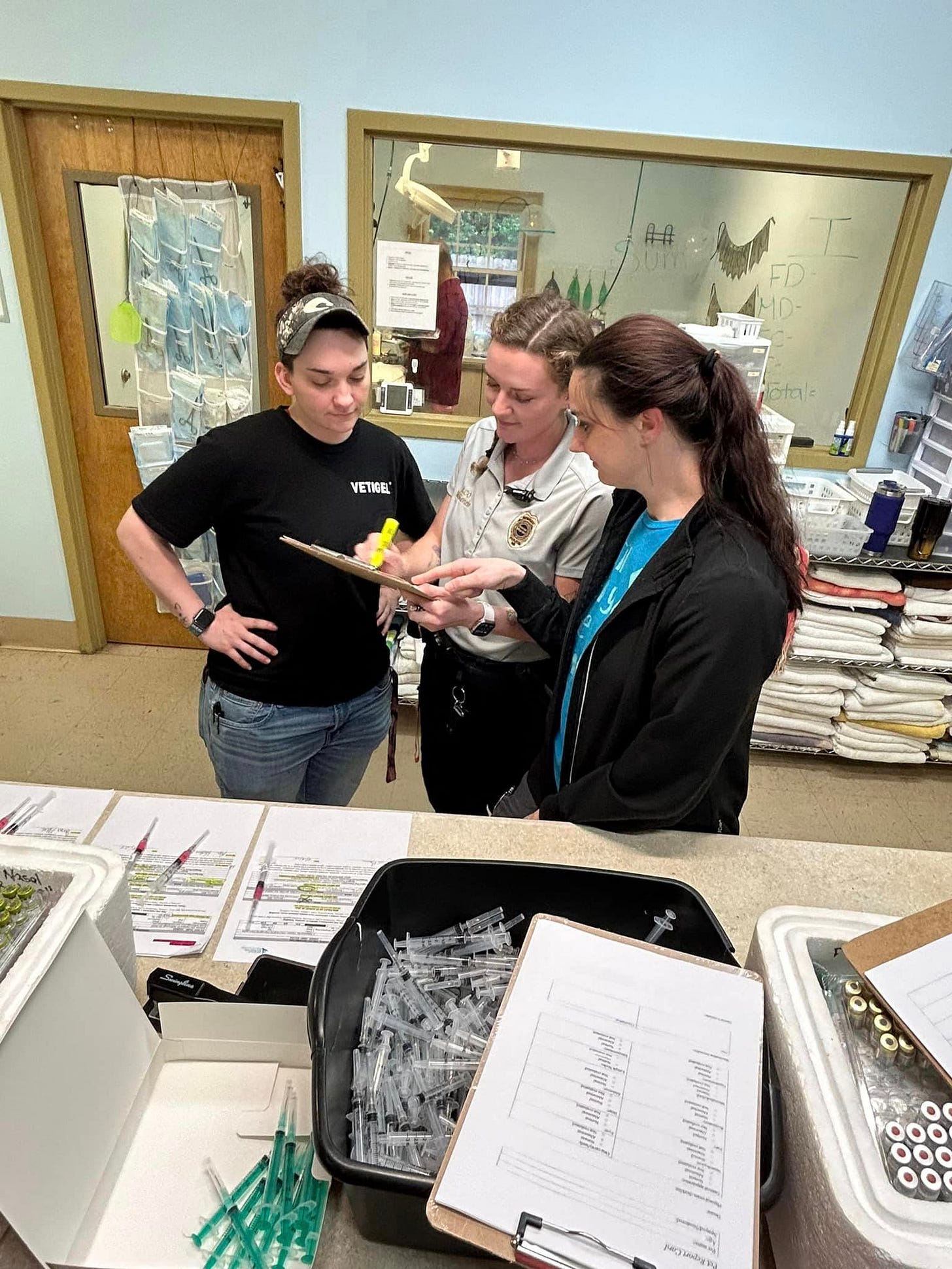The Importance of Volunteer Work Before Applying to Veterinary School
Volunteering at an animal hospital is essential for gaining practical experience, and understanding the veterinary profession.
Volunteering at an animal hospital before applying to veterinary school is a beneficial experience and a critical component of becoming a successful veterinarian. This volunteer work provides aspiring veterinary students a sense of fulfillment and satisfaction, hands-on experience, a realistic understanding of the profession, and several other invaluable benefits that significantly enhance their preparedness for veterinary school and future careers.
Hands-On Experience
Volunteering at an animal hospital is a gateway to practical skills essential for a successful career in veterinary medicine. This hands-on experience allows you to develop crucial skills in handling and caring for different species, which cannot be fully acquired through theoretical classroom learning alone. This practical exposure ensures that you are familiar with and comfortable in a clinical setting, which is crucial for your future studies and professional practice.
Understanding Veterinary Work
Volunteering also offers a realistic view of the daily responsibilities and challenges veterinarians and their teams face. This firsthand insight helps students understand the profession's demands and rewards, allowing them to confirm their commitment to pursuing a career in veterinary medicine. It is one thing to aspire to be a veterinarian; it is another to experience the rigors and joys of the profession firsthand. This understanding is vital for making an informed decision about entering the field.
Enhancing Your Application
Veterinary schools highly value applicants with practical experience. Volunteering demonstrates a candidate's dedication, initiative, and understanding of the field, making their application more compelling. Admissions committees look for evidence that applicants are well-prepared for the challenges of veterinary school, and volunteer work is a clear indicator of this preparedness. It shows that the applicant has taken proactive steps to gain relevant experience and is serious about their veterinary career.
Furthermore, volunteer experience can differentiate your application from others. In a highly competitive field, every distinguishing factor matters. Experiences and anecdotes from volunteering can provide unique talking points in personal statements and interviews, showcasing your real-world understanding of veterinary medicine. This enhances your written application and prepares you to discuss your experiences and reflections compellingly and authentically during interviews, making you a memorable and standout candidate.
Building Professional Relationships
Volunteering at an animal hospital is not just about gaining experience but also about building valuable professional relationships. These connections can lead to mentorship opportunities, letters of recommendation, and useful career advice. Having mentors who can guide and support you through your educational journey and beyond is invaluable. Moreover, strong letters of recommendation from experienced veterinarians can significantly bolster your application to veterinary school, providing a credible endorsement of your capabilities and dedication.
Additionally, the professional relationships you build during your volunteer work can offer insights into various career paths within veterinary medicine. By interacting with veterinarians specializing in different areas, you can gain a broader perspective on the field and learn about potential opportunities you might not have considered otherwise. These connections can also inform you about job openings, internships, and other professional development opportunities, giving you a head start in your career. Building a robust professional network early on can be incredibly advantageous as you progress through veterinary school and beyond.
Developing Soft Skills
In addition to technical skills, volunteering helps develop critical soft skills such as communication, teamwork, and problem-solving. These skills are crucial for a successful veterinary career and are highly valued by admissions committees. Effective communication with pet owners, collaboration with colleagues, and thinking critically in high-pressure situations are all integral to veterinary practice. Volunteering provides a practical setting to hone these skills and grow and develop as an individual, ensuring that prospective students are well-rounded and prepared for the multifaceted nature of veterinary work.
Exposure to Different Specialties
Animal hospitals often deal with a variety of cases and specialties. Volunteering exposes students to different aspects of veterinary medicine, helping them discover specific areas of interest for their future studies and careers. Whether it is surgery, emergency care, dermatology, or another specialty, this exposure allows students to explore different pathways within the field and make more informed decisions about their career direction.
Demonstrating commitment
Consistent volunteering shows a long-term commitment to animal care and veterinary medicine. It reflects an applicant's passion and seriousness about entering the profession. Veterinary schools seek candidates who are academically capable and genuinely dedicated to the field. Demonstrating a history of volunteer work in an animal hospital is a powerful way to convey this commitment.
Moreover, a sustained record of volunteering highlights your resilience and ability to balance multiple responsibilities. This aspect is vital as veterinary school is demanding, requiring students to manage rigorous coursework alongside practical training. By maintaining a commitment to volunteering, you show you can handle a challenging schedule and remain dedicated to your goals. This resilience and determination are qualities that veterinary schools look for in candidates, as they indicate an ability to thrive in the demanding environment of veterinary education and practice.
Volunteering at an animal hospital is essential for gaining practical experience, understanding the veterinary profession, enhancing your application, building professional relationships, developing soft skills, exploring different specialties, and demonstrating your commitment to the field. It is a comprehensive preparatory step that equips aspiring veterinary students with the knowledge, skills, and insights necessary for success in veterinary school and their future careers. By volunteering, prospective students take a significant step toward achieving their dream of becoming a veterinarian.







